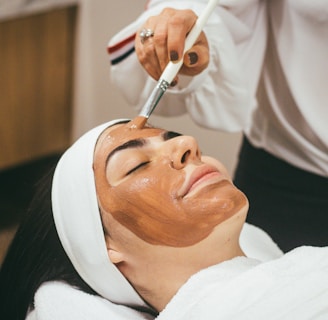The Science of Aging: Understanding the Process
AGING
2/10/20258 min read


Introduction to Aging
Aging is a complex process that is universally experienced by all living organisms. It is commonly understood as the gradual decline in biological function that occurs over time, ultimately leading to the deterioration of physical and mental capacities. The significance of aging extends beyond mere chronological markers; it is a pivotal aspect of human life that influences health, societal dynamics, and economics. With advancements in medicine and an increasing average lifespan, understanding the aging process has become more pertinent than ever.
Chronological aging refers to the passage of time from birth to the present, measured in years. However, it does not capture the nuances of how individuals experience aging. Biological aging, on the other hand, encompasses the physiological and cellular changes that occur within the body as it ages. These changes significantly contribute to physical decline, increased vulnerability to diseases, and mortality. As such, while two individuals may share the same chronological age, their biological ages can differ significantly. This distinction highlights the variability of the aging process influenced by genetics, lifestyle factors, and environmental conditions.
The exploration of biological aging necessitates an understanding of various mechanisms at play, including genetic factors, cellular senescence, and the role of oxidative stress. Scientific research has uncovered numerous pathways that track the progression of aging, thereby facilitating the development of interventions aimed at enhancing healthspan—the period of life spent in good health. As we delve deeper into these complexities in subsequent sections, it becomes imperative to recognize the significance of biological aging not merely as a period of decline but as a critical determinant of overall health, longevity, and quality of life.
The Biological Mechanisms of Aging
Aging is a complex biological process influenced by various mechanisms that contribute to the gradual decline of physiological functions over time. Key among these mechanisms are cellular senescence, genomic instability, telomere shortening, and oxidative stress. Each of these plays a critical role in our understanding of how aging occurs and how it affects human health.
Cellular senescence refers to the state in which cells lose their ability to divide and function optimally. This stoppage can result from various factors, including DNA damage and stress signals. When a significant number of cells enter this senescent state, they can induce inflammation and disrupt tissue homeostasis, further accelerating the aging process. Understanding cellular senescence can offer insights into age-related diseases such as cancer and neurodegeneration.
Genomic instability, characterized by the accumulation of mutations in the DNA, is another major contributor. As organisms age, the ability to repair DNA damage diminishes, leading to a higher mutation rate. This instability not only accelerates aging but also increases the risk of age-associated diseases. Insights into genomic stability may inform strategies to mitigate these impacts, potentially enhancing longevity and quality of life.
Telomeres, the protective caps at the ends of chromosomes, play a crucial role in cellular aging. Each time a cell divides, telomeres shorten, which ultimately limits the number of divisions a cell can undergo. Once telomeres reach a critically short length, cells enter senescence, contributing to tissue dysfunction. Investigating telomere dynamics may provide avenues for delaying the aging process.
Oxidative stress arises from an imbalance between reactive oxygen species and the body’s ability to detoxify them. Increased oxidative damage accumulates over time and contributes to age-related decline. Understanding oxidative stress's role could lead to interventions that enhance cellular resilience and improve overall health.
Aging and Skin Health
The process of aging fundamentally alters various biological systems, and one of the most visible manifestations of this process occurs in the skin. As individuals age, the skin undergoes significant structural and functional changes primarily due to the decreased synthesis of critical proteins such as collagen and elastin. These proteins provide elasticity and structural integrity to the skin, their reduction leads to sagging and the appearance of wrinkles, which are hallmark signs of aging.
Another key component that diminishes with age is hyaluronic acid, a substance that helps retain moisture in the skin. The decline in hyaluronic acid not only contributes to dryness but also affects the skin's plumpness, making it look less youthful. The cumulative effect of these changes results in altered skin tone and texture. Many older individuals may notice an uneven skin tone, with areas of hyperpigmentation becoming more pronounced over time.
Furthermore, the aging process affects the skin's ability to heal and regenerate. The turnover rate of skin cells slows, which can lead to a dull appearance and an increased risk of skin damage from environmental factors. Such changes underscore the importance of maintaining skin health as it reflects the overall aging process. Healthy skin can indicate effective cellular function and an optimized repair mechanism, essential elements for general well-being.
Incorporating appropriate skincare regimens and preventive measures can help mitigate some impacts of aging on skin health. Regular hydration, sun protection, and the use of products rich in antioxidants may support skin vitality. Emphasizing skin health is crucial, as it not only signifies aesthetic appeal but also serves as an indicator of one's biological age and overall health status. By being proactive about skincare, individuals can enhance not only their appearance but also their quality of life as they age.
The Role of Genetics in Aging
Genetics plays a pivotal role in the aging process, influencing how individuals age and the rate at which they experience age-related changes. At the core of this relationship is the concept of genetic inheritance, where traits are passed from parents to offspring through genes. Among these genes, researchers have identified specific ones that are closely associated with longevity and overall health in later life. Variations in these genes can determine an individual's vulnerability to age-related diseases and their capacity for cellular repair.
One significant area of study focuses on telomeres, the protective caps at the ends of chromosomes. Telomeres shorten with each cell division, which is believed to contribute to the aging process. Certain genetic factors can influence telomere length, potentially allowing for a slower rate of aging in some individuals. For instance, individuals with longer telomeres may experience fewer age-related health issues compared to those with significantly shorter telomeres.
Additionally, research has highlighted the impact of key genes such as the sirtuins, which are involved in regulating cellular processes that promote longevity. These genes have been linked to metabolic functions, stress responses, and inflammation reduction. Activation of sirtuin genes has been correlated with increased lifespan in various model organisms, suggesting that similar mechanisms may occur in humans.
Furthermore, genetic predispositions can affect how individuals respond to lifestyle changes aimed at reducing age-related decline. For example, certain genetic markers can influence how a person metabolizes nutrients or responds to exercise, which in turn impacts their overall health and longevity. As research advances, the hope is that understanding genetics will provide insights not only into the aging process but also into potential interventions that could enhance the quality of life for aging individuals.
Environmental and Lifestyle Factors Influencing Aging
The aging process is not solely determined by genetic predispositions; environmental and lifestyle factors play a critical role as well. These factors contribute significantly to biological aging and can accelerate or mitigate its effects. Among the most influential lifestyle choices are diet, exercise, sun exposure, smoking, and stress management.
Nutrition is paramount in influencing how the body ages. A diet rich in fruits, vegetables, whole grains, and healthy fats can enhance cellular function and support longevity. Antioxidants and anti-inflammatory compounds found in certain foods combat oxidative stress, which is known to contribute to the aging process. Conversely, a diet high in processed foods and sugars can lead to chronic diseases that may accelerate aging.
Physical activity is another crucial element in promoting healthy aging. Regular exercise improves cardiovascular health, boosts metabolism, and enhances overall physical functioning. Studies indicate that individuals who engage in consistent physical activity tend to enjoy a higher quality of life as they age, experiencing less muscle atrophy and maintaining better mobility.
Exposure to sunlight, while necessary for vitamin D synthesis, presents a paradox in the aging process. Unprotected sun exposure can lead to skin damage, increasing the risk of skin cancers and accelerating the formation of wrinkles. It is essential to strike a balance between obtaining nutrients from the sun and protecting the skin from harmful rays through clothing and sunscreen.
Additionally, smoking is known to have detrimental effects on aging. It harms nearly every organ in the body and notably accelerates the aging of the skin, leading to premature wrinkles and loss of elasticity. Finally, chronic stress can develop into more serious health issues, further exacerbating the aging process. Managing stress through mindfulness practices, exercise, and social connections can enhance both mental and physical well-being.
Ultimately, individuals can take proactive measures to influence their aging trajectory. By adopting a balanced diet, engaging in regular exercise, responsibly managing sun exposure, avoiding smoking, and keeping stress in check, it is possible to embrace a healthier, more vibrant aging experience.
Current Research and Innovations in Anti-Aging
The field of anti-aging research has witnessed significant advancements in recent years, aimed at not only extending life expectancy but also enhancing the quality of life as individuals age. A key focus of this research is the exploration of cellular aging and the mechanisms that contribute to the aging process. Emerging therapies are being developed to target these cellular factors, potentially revolutionizing how we approach aging.
One promising avenue is stem cell therapy, which harnesses the regenerative capabilities of stem cells to repair or replace damaged tissues. This approach holds the potential to mitigate some of the effects of aging by rejuvenating aging organs and promoting healthier cellular function. Clinical trials are currently underway to assess the efficacy and safety of these treatments, with preliminary results indicating promising outcomes.
Moreover, researchers are increasingly investigating senolytics—compounds that selectively eliminate senescent cells, known for their detrimental impact on surrounding healthy cells. The accumulation of these cells is associated with various age-related diseases, making senolytics a focal point in combating aging. Early studies suggest that clearing these cells can lead to improved tissue function and lifespan, indicating a compelling area for future intervention.
In addition to these therapeutic innovations, dietary strategies such as caloric restriction and intermittent fasting have gained attention for their potential effects on aging. These approaches have been shown to activate cellular repair mechanisms and increase the production of longevity-related genes. Scientific investigations continue to unveil how dietary practices can modulate the aging process, providing insights into practical lifestyle changes that may complement medical therapies.
As research in the domain of anti-aging continues to evolve, the possibilities for enhancing longevity and wellbeing appear promising. By combining innovative therapies with lifestyle interventions, there is a potential to redefine our understanding of aging and improve life quality for future generations.
Conclusion: Embracing the Aging Process
The exploration of the aging process reveals a complex interplay of biological mechanisms that shape our lives as we grow older. Through this journey, we have gained insights into how cellular changes, genetic factors, and environmental influences contribute to the overall experience of aging. It is essential to acknowledge that aging is not merely the accumulation of years but a dynamic process that encompasses physical, emotional, and social dimensions.
Understanding the science behind aging empowers individuals to make informed decisions regarding their health and well-being. Lifestyle choices, such as a balanced diet, regular exercise, and mental stimulation, can significantly enhance one's quality of life as they age. Moreover, advancements in medical science, including innovative therapies and preventative measures, offer new avenues for enhancing longevity and vitality. Such approaches highlight the potential for individuals to influence their own aging process actively.
Embracing the concept of aging as a natural part of life fosters a constructive outlook. Rather than viewing aging with apprehension, it is beneficial to recognize it as an opportunity for personal growth and continual learning. Throughout history, individuals have demonstrated resilience and adaptability in the face of age-related changes, reminding us that our experiences and accomplishments can enrich our later years.
In conclusion, understanding the biological mechanisms and lifestyle factors associated with aging can lead to more empowered choices. By combining knowledge of science with personal care practices and embracing each stage of life, individuals can navigate the aging journey with confidence. Ultimately, acknowledging the inevitability of aging while actively promoting well-being can lead to a fulfilling and vibrant life as we age.
Nourish
Empowering women with beauty and wellness insights.
Glow
Revive
contact@yourbeautyguide.com
© 2025. All rights reserved.
